Eco-Dharma

11th-25th January 2017:
I wrote a little, previously about my time earlier this year at Eco-dharma. As it was a very important part of my journey so far, I would like to give a little more detail about the site, the community and what life was like there for me.
Eco-Dharma is a Buddhist community in the Catalan Pyrenees and they describe their approach and way of life very beautifully and clearly on their website:
“The Eco-Dharma Centre is situated in a beautiful and wild part of the Catalan Pyrenees. We offer courses, events and retreats which support the realisation of our human potential and the development of an ecological consciousness honouring our mutual belonging within the web of life – drawing on the Buddhist Dharma and the emerging ecological paradigms of our time.
We are trying to implement sustainable living systems in our approach, learning to apply permaculture techniques and principles where we can. Almost all of our power here is generated by renewable sources. We have a medium sized solar energy systems at a couple of the houses and other small living structures (like solitary retreat cabins) have small solar system too. We use very little electricity, and most of that is on a 12-volt system – a few lights (low consumption, mostly LED’s), a few 12v auxiliary sockets for laptop computers and charging other appliances. We have no large mains powered domestic appliances. Store rooms traditionally built into the hillside seem adequate for keeping foodstuffs cool. Solar water heating systems are usually sufficient for our needs if we respect our water as a resource that is not unlimited! In the winter living spaces are heated with wood burning stoves. We have a general policy of cutting wood sustainably. We have begun a study for sustainable management of the woodland and tree planting. We also aim to cultivate the land in order to provide a large part of the requirements of the community here – working gradually towards more and more self-reliance in food and fuel.
We are developing things here in a slow and organic fashion, keen not to do so too fast. Finding the balance between convenience and simple living is not easy and there are now set answers. For example, at one house we currently carry all our drinking and cooking water a short distance from one of the springs to the kitchen. We have a solar powered pump that would enable us to pump water to a small tank above the kitchen and then gravity feed it to a tap. But because of the value we find in carrying water we haven’t installed the pump yet! Every visit to the spring is a reminder of that source of life, and of the preciousness of the resource. Every added convenience is clearly also the loss of an activity that can trace connection to the earth. We want this place to grow out of needs, not an overarching plan toward greater efficiency for its own sake. It feels very healthy to have a reasonable amount of time dedicated to simple tasks, which are essential for life. It connects us to the land, to the place, and to the basic rhythms of life.”
I was instantly attracted to Eco-Dharma: I have long been fascinated by the combination of Ecological and Buddhist approaches, for me it’s a perfect approach that supports physical emotional mental and spiritual growth. At eco-dharma they hold courses on so many aspects of ecology that I love: the work of Joanna Macy, Systems theory and a natural based view of the world. I was eager to spend some time there in solitude and with the support of the community.
“Our cabin was specially built for solitary retreats. It has been constructed using ecologically sustainable methods: A round-wood frame, a stone base supporting strawbale and lime render walls, and a turfed roof. It’s porch opens onto a beautiful wooded glade, beyond which fantastic views stretch down to the valley far below. The south facing glazed wall allows lots of light, while the broad porch roof provides plenty of shade in the summer months. This cabin is much loved by all who stay there.” Eco-Dharma.
My time in in solitary my little cabin in the woods in the Catalan Pyrenees remains deep in my heart as a time of profound peace and a beautiful gift for my life. Each day I would get up before sunrise, light the stove, make some tea and sit down to meditate with a view to the sun rise over the mountains. The main focus of my meditations were some simple grounding practices, joy practices inspired by The Dalai Lama and Bishop Desmond Tutus “The book of joy” and a compassion practice called the metta bhavana: a loving kindness meditation. After meditating I moved and did some yoga in the sunlight until my hunger kicked in, then I prepared breakfast and sat out on the veranda in the sunshine, wrapped in blankets and wearing a huge smile. This was the absolute favourite part of my day. Just sitting there with my body singing with joy from movement and mediation and with a delicious bowl of porridge and seeds and for company: a brazen robin, a travelling charm of coal-tits, sometimes a mouse and on a few occasions a wonderfully territorial black tufted squirrel. I would sit surrounded by the sound of birdcalls and the delicious warmth of the suns ray flickering through the tree canopy.
After breakfast I often painted or wrote for a few hours and had some small lunch and headed out for a walk to either one end or the other of the valley. I am always amazed when I go to a new place and I get to see the landscape for the first time, it all feels vivid and exciting and new. The second time I see it, it seems less ‘exciting’, but if I go each day walking the same path, something different kicks in: I begin to notice the differences in the details, the changing patterns of light, the new tracks of mice, deer and foxes. After a number of days I felt very much at home in the landscape of the valley and found that I could walk more quietly on the gravely ground and could see and hear more birds and regularly saw deer and a wild boar. I found that I moved with a greater sense of atunement to where I was. It makes sense and it filled my heart with joy to be more connected with the landscape. With no company other than the land, the plants the animals and the elements I found that I listened to them more, with no computer and internet distraction I found that my stress levels faded and I landed into a wonderful state of … simple happiness. I don’t know what else to call it… I guess it was real contentment. I love that I can be happy with so little. I love that this happiness really does lie within me and within my capacity to listen and connect.
Each day I stayed out in the landscape watching the light change; the shadows get longer and eventually watched the sun go down. Each evening it was different: a different cloud formation, different colours. Sometimes the families of vultures flew over head. On my last evening 28 of them flew above me at sunset, flying higher and higher up in the rising air. On the same evening groups of crows gathered around me – one calling and gathering others to join them flying over low rocky outcrops and eventually gathering a large enough group and flying up into the rocky crest heights to roost. Each evening I walked back to the cabin in twilight filled with such gratitude for the richness of a simple day. I would prepare an evening meal and light the fire again, I would paint, write, and meditate before bed. Each evening, writing, I could only write about how grateful I was, I feel that my heart expanded in this landscape and in this lifestyle. And I always slept so soundly in the incredible silence. Sometimes before sleeping I would sit out on the veranda in the pitch-black silence and watch the stars and the tiny specks of car lights way off in the distance beyond my secluded valley, climbing a winding mountain road out to the rest of the world. The silence of the night really astounded me – I got used to the singing in my ears that is only audible when all other sounds are silenced… I wondered if I had tinnitus for a while but realised that it was just that I wasn’t used to this much silence.
There were evenings in the cabin when the blackness outside felt like it was going to suck me out of the cabin and I would tuck blankets in around the windows as if it would keep me safe. Mostly thought I felt warm, grateful and safe in my cabin.
This time in the woods changed me. It allowed me, in a very embodied way, to feel and believe that we do not need to go hunting outside of ourselves for happiness. Creating a better way of living is about finding happiness and fulfilment; this starts with finding your home within ourselves. This is my practice – I don’t always remember it, but remembering my time in my cabin in the woods helps me tap into that sense of fulfilment that now exists somewhere in my being, just waiting to be re-called.
I learned in my time in the cabin to really explore my relationship with compassion through the Buddhist practice of meta bhavana. This is quite a simple practice for cultivating loving kindness towards ourselves and all other beings. Even though I was alone I found through this practice that I learned to access and greatly extent my capacity for compassion. I would sit in the mornings in this practice weeping with pain and then joy at my sense of connection to people I love, for myself, for people who challenge me and for the health of all living beings. This simple practice allowed me to open my heart more and increased my capacity to really BE in connection with myself and with others in community.
I will leave you with the words of Bishop Desmond Tutu and the Dalai Lama and the wisdom that two wise joyful old men can teach us about creating new ways of living.
“Expanding our circle of concern is essential for both our well being as well of that of the world…….Our survival depends on the rest of the community – so who ever you are if you want a happy life and fewer problems, you have to develop a serious concern for the well-being of others……This concern for others is something very precious. We humans have a special brain, but this brain causes a lot of suffering because it is always thinking me, me, me, me. The more time you spend thinking about yourself, the more suffering you will experience. The incredible thing is that then we think of alleviating others suffering, our own suffering is reduced. This is the true secret to happiness so this is a very practical thing in fact it is common sense.”
The Book of Joy His Holiness the Dalai Lama and Archbishop Desmond Tutu with Douglas Abram’s
– – – – – – – – – – – – – – – – – – – – – – – – – – – – – – – – – – – – – – – – – – – – – – – – – –
Relevant links:

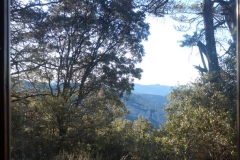

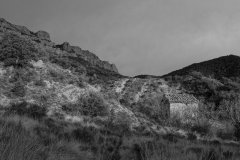
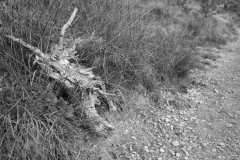

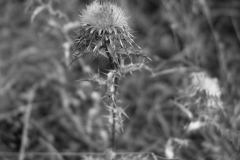

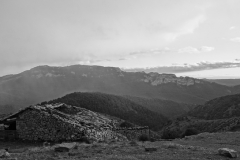
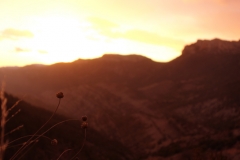
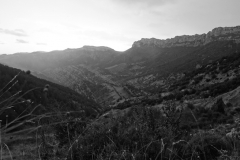
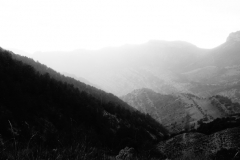
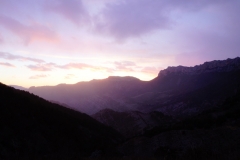
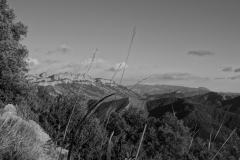
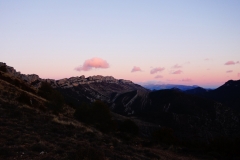
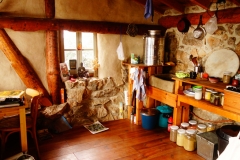
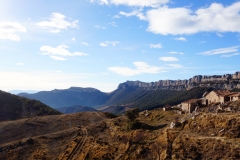
Recent Comments